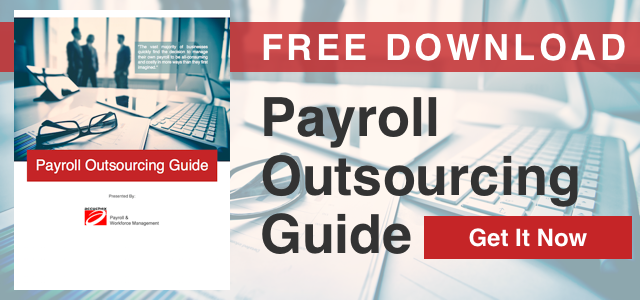Employers in California are now subject to both federal, state and - in some instances - local labor laws mandating the minimum wage. And, for many, the increasing overhead is staggering.

The base minimum wage rate is established by the federal government, although there are currently two states that still have minimum wages lower than the federal rate. The most recent federal increase went into effect on July 2015, the federal government mandated a nationwide minimum wage level of $7.25 per hour.
In California, almost all employees must be paid the minimum wage as required by state law, with some exceptions.
Effective January 1, 2016, the minimum wage in California was $10.00 per hour. There are some employees who are exempt from the minimum wage law, such as outside salespersons, individuals who are the parent, spouse, or child of the employer, and apprentices regularly indentured under the State Division of Apprenticeship Standards.
Recent Additions to Local Minimum Wage Hikes
In August 2016 the city of San Mateo council approved a $15 minimum wage by 2019 ordinance. Until now, no city in San Mateo County had raised its minimum wage above the state rate, which is currently $10 and scheduled to reach $15 by 2022.
San Mateo's minimum wage will increase to $12 on January 1,2017, to $13.50 in 2018 and to $15 in 2019. All subsequent increases will also take effect on January 1 of that year.
Voters in San Diego’s approved an Earned Sick Leave and Minimum Wage Ordinance on June 7, 2016, but the effective date was delayed until the election results were certified. Once that certification was completed the ordinance took effect on July 11, 2016.
Employees working within the geographic boundaries of the City of San Diego must now be paid a minimum wage of at least $10.50 per hour. The minimum wage will increase again to $11.50 per hour on January 1, 2017, and beginning on January 1, 2019, the minimum wage in San Diego will be tied to the Consumer Price Index and adjust as necessary based on the cost of living.
Currently, at least 28 cities, towns or municipalities in California have their own minimum wage laws and ordinances. Even the Jackson Rancheria Band of Miwok Indians Casino's and Resorts has instituted it's own minimum wage requirements.
These include all of Los Angeles City and County, San Francisco, Oakland, Berkeley, Santa Clara, San Jose and Sacramento.
The Fiscal Impact on Local Employers is Subject to Debate
Smaller employers with between 25 and 100 employees will be the hardest hit, especially in industries that traditionally hire mostly low-wage workers.
How hard? According to a recent article from Stateline:
A 2016 study on the effects of increasing the minimum wage in San Jose and Santa Clara County, California, by the left-leaning Center on Wage and Employment Dynamics at Berkeley, projected the higher wage costs for business would be absorbed through “improved productivity, reduced worker turnover, and modest price increases.” The net effect on employment growth would be “very slightly negative” at the city and county levels, but nearly zero when spread over the encompassing region, according to the study.
But right-tilting think tanks suggest the effects of wage hikes on employment would be much worse. In a paper for the Mercatus Center at George Mason University, research fellow Adam Millsap wrote that a proposed minimum wage increase in Baltimore might help “some people who are able to keep their job at the higher wage, but for the 40 percent who can’t find a job at the current minimum wage of $8.25, an increase to $15 is only going to make the task harder, if not impossible. Who is standing up for these people?
The bottom line for all employers is that the wage increases are mandated and will have to be paid. This will mean changes in business structure for some, and possibly closures or lay-offs for others. HR professionals in every business are tasked with staying abreast of the myriad of wage laws, as well.
Navigating California Labor Laws - Minimum Wage and Other Employer Requirements
Many of these new regulations expand the scope of risk for employers, and require new workplace postings or changes to existing workplace policies. We recommend that all California employers consult with experienced employment counsel to ensure compliance.
Accurate and timely management and compliance practices are required for every business and every payroll professional. But there are options.
Accuchex, a reputable payroll management services provider, can not only relieve you of the burden of your ongoing payroll process demands, but can potentially prove to be a more cost-effective solution, as well.
To get your Free Download: Payroll Outsourcing Guide click the button below and let us help you make an informed decision. Or you can call Accuchex Payroll Management Services at 877-422-2824.


